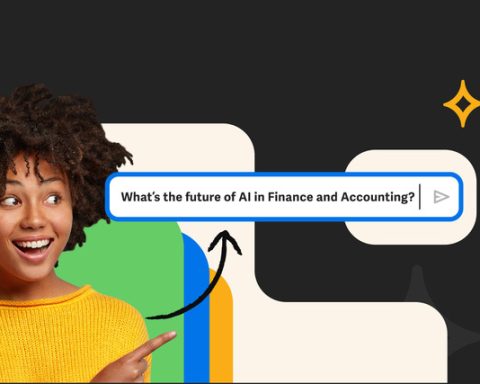Staying ahead of the curve is essential in the fast-paced realm of Silicon Valley, where deals are made and fortunes are forged or lost, with speed playing a role in many of the outcomes. And right now, one technology is causing ripples of excitement throughout the industry: artificial intelligence (AI). Yes, all we hear is companies that are developing this technology, but how will you be able to use it one day to get your company sold without spending the hundreds or even thousands of hours that many business owners and bankers are currently allocating to execute that sales process?
Picture this: you’re gearing up for the sale. It’s a journey fraught with complexities, from packaging your company, marketing it, negotiations, due diligence, and more negotiations. All these hours, you and your team are manually doing all this work. But in the future, with AI by your side, navigating these waters will become a short and smooth ride.
Let’s take a closer look at how AI is currently and will continue to revolutionize every step of the process:
1. Data Room Revolution
Preparing a data room for potential investors traditionally involves painstaking manual labor. Dragging files, scanning documents, tagging items, and hoping all the information is there. You often forget what items still need to be added or updated. But with AI, this task will be streamlined with AI algorithms that can sift through mountains of data, spot red flags, identify missing information, and generate comprehensive reports in a fraction of the time it would take a human team.
2. Crafting Compelling Market Materials
The pitch teaser, executive summary, Confidential Information Memorandum, or any other documents you decide to use, are time consuming to create. Compiling these materials is an art form that people spend their entire careers perfecting. Creating these documents costs time, money, and knowledge that many founders do not have. AI will bring a new level of sophistication and customization to this process, using advanced algorithms to analyze the data room and pull the information to craft pitch-perfect presentations and materials, ranging from eye-catching visuals to persuasive narratives. Let’s even take that to the next level and imagine software that pulls information on the buyers you are about to meet. It knows what that buyer wants, selects the correct information from your data room, and creates a customized deck just for that meeting, ensuring that your company shines in the eyes of potential acquirers.
3. Precision Targeting
Finding the right buyers for your company can be like searching for a needle in a haystack. I cannot tell you the number of conversations I have had where a business owner thinks their company is about to sell because they had a single conversation with someone at an event. They have no idea what that buyer’s thesis is (what companies they will write checks for, based around parameters such as in a particular sector, size, revenue, EBITDA limit etc.) but believe all buyers are the same. They are unaware of how many conversations it takes, how to filter those conversations and how to narrow down the connections, to the most likely buyer candidates. With AI-powered targeting and algorithms you can analyze buyers preferences and match them with companies that meet their criteria, saving time and increasing the likelihood of a successful deal.
Imagine a tool with access to information on the buyers, such as the investment thesis, and information they might not want to say publicly, such as the amount of capital they still have to deploy. With that information and real-time data from your data room, AI could decide the best time to connect and initiate a communication sequence in a timely manner, which could have fantastic results. For example, you will get notified that a new customized deck will be sent to a buyer in 6-weeks when your company is expected to be very close to their minimum investment criteria, based on their investment thesis. The caveat being that the investor will have raised funds to allow them to sit down and start writing checks.
4. Streamlining Negotiations
Negotiating deals can be a time-consuming and labor-intensive process exacerbated when one side might go into a negotiation with incorrect expectations, based on rumors, missing data of another company, or unreasonable valuation. AI, one day, might be used to analyze the market, synergies, value drivers, deal terms, and much more based on my assumption there is going to be a lot more data available for the AI algorithms to use. This will in turn bring clarity and offer suggestions on why other deals were priced the way they were, putting things into a better perspective for all parties. This might also help to expedite the negotiation process and ensure that both parties are satisfied.
5. Lightning-Fast Due Diligence
Due diligence is a critical step in any investment transaction and one of the most time-consuming. How many people have sat there waiting for a report from a third-party service provider? We are just waiting for this expert’s opinion, or the famous, “We only want to work with this one group to do IT due diligence and they are backed up two weeks.” AI is changing that. One example is a company whose founder I just talked to last week. www.evalify.ai an AI-powered platform that analyzes ~190M patents from 170+ jurisdictions to spot legal risks and opportunities for investors in minutes.
By automating many parts of the due diligence process, AI algorithms can quickly sift through vast amounts of data, identify potential risks or red flags, and generate comprehensive reports, allowing deals to move forward faster.
6. Document Drafting Made Easy
Finally, when it comes time to draft legal documents, AI will again lend a helping hand. By analyzing existing contracts and legal precedents, AI algorithms will generate draft documents tailored to the deal’s specific needs, saving time and reducing the risk of errors. I am waiting for the time (this does sound scary, though) when all the interactions on a deal have been recorded, such as Zoom and phone calls. AI then uses this information to update all the contracts before signing based on all the conversations, so there are no disconnects on what was said.
But while AI is and will undoubtedly transform the transactional landscape, it’s important to remember that it’s not a panacea. As an investment banker focused on helping companies through mergers and acquisitions, I’m excited about when all this technology gets created and adopted. You might think I should be scared because I’ll be out of a job, but in reality, I’ll get to use my time on what I like to do—building relationships, fostering trust, and providing personalized guidance to clients before, during, and after these transactions. After all, behind every deal is a human, so as we embrace the AI-powered future, let’s not forget the human element at its core.
AI will change roles, responsibilities and the process, opening doors and unlocking many opportunities. I have heard of or been introduced to companies working on solving many of the things above, and with the speed of AI, many of these could already be solved, but I am just unaware of them. If there is a company you think helps solve any step in the M&A process, please place their information below in the comments.
If you thought this was helpful, please share and add to the conversation by writing a response.
***The content is not intended to provide legal, financial or M&A advice. It is for information purposes only, and any links provided are for your convenience. Please seek the services of professional(s) before making any decisions. ***




















